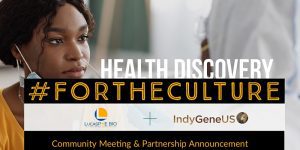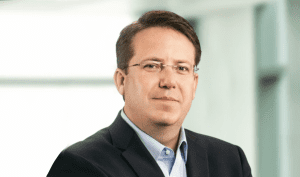
Could Philadelphia Become a Destination for Equity-Minded Life Sciences Training?
Philadelphia has seen a 127% increase in cell and gene therapy employment since 2019.
That eye-popping stat comes from the University City Science Center’s 2022 report Greater Philadelphia Cell and Gene Therapy Workforce Update, a follow up to the 2020 Cell and Gene Therapy and Connected Health Workforce Analysis study. It translates to potentially thousands of open roles in the region known by the branding obsessed as Cellicon Valley.And yet, that stat doesn’t necessarily mean Philadelphians in need of wages that would support a higher quality of life are trained for those available life science jobs — or even know they exist.
A Friday morning panel called “Workforce Development in the Life Sciences: Building Skills, Diversity and Education in Philadelphia and Beyond” during the 2022 B.PHL Innovation Fest dove into the barriers and opportunities for the life science industry’s workforce.
Phil Brooks, director of STEM workforce partnerships at the Science Center, and Tia Lyles-Williams, founder and CEO of both LucasPye Bio and HelaPlex, both sat on the panel moderated by Lauren Swartz, president and CEO of the World Affairs Council of Philadelphia.
Brooks’ work centers on exposure to professional opportunities through workforce development programs. Lyles-Williams said HelaPlex, a forthcoming Philly life sciences workspace, is planning a pilot program — the HelaPlex Biotechnology Workforce Development Training Program — for summer 2023 to train people trying to get into the life sciences. Both have a focus on diversifying the field. HelaPlex’s name is even inspired by the case of Henrietta Lacks, the Black Maryland woman whose cancerous cells were cloned in the 1950s without her consent and used for the development of medical breakthroughs such as vaccines and genetic mapping.
HelaPlex is “not just being an advocate of members of marginalized communities, to go after these jobs — we’re actually being leaders and protectors,” Lyles-Williams said, adding that she wants people to not just get a life sciences job, but be successful in that job and in the industry. The program is targeted toward such communities including women, people of color and members of the LGBTQ+ community.
Read the full article at: technical.ly
- About the Author
- Latest Posts
BioBuzz is a community led, experience focused, biotech and life sciences media and events company. BioBuzz highlights regional breaking news, industry professionals, jobs, events, and resources for business and career growth. Their weekly newsletter is subscribed to by thousands in the BioHealth Capital Region and Greater Philadelphia as the go-to for industry updates.





